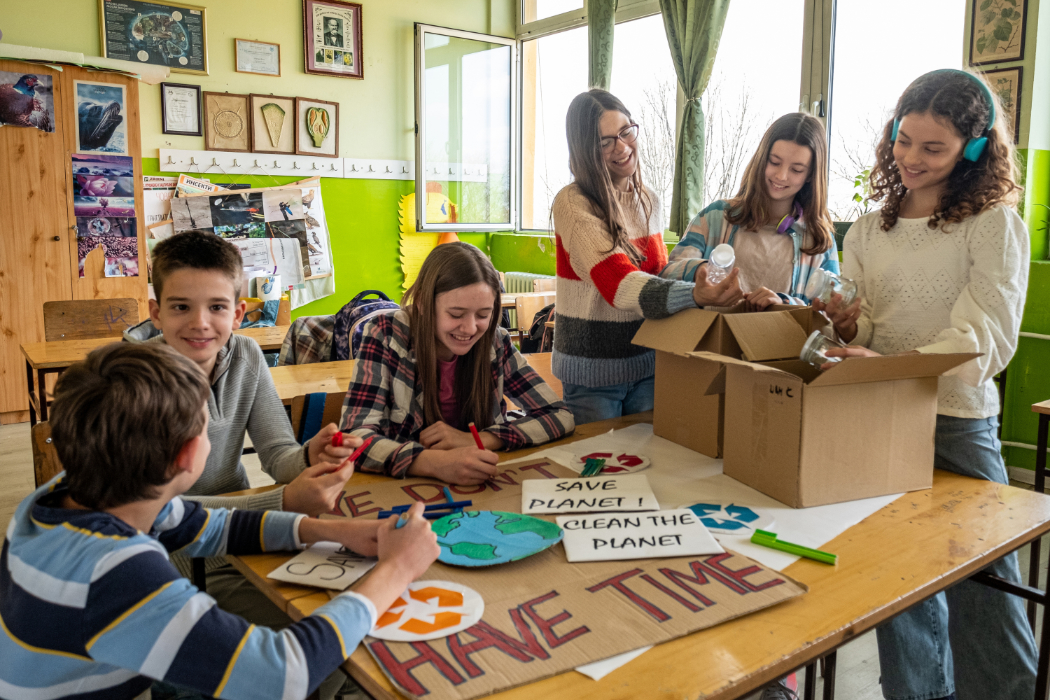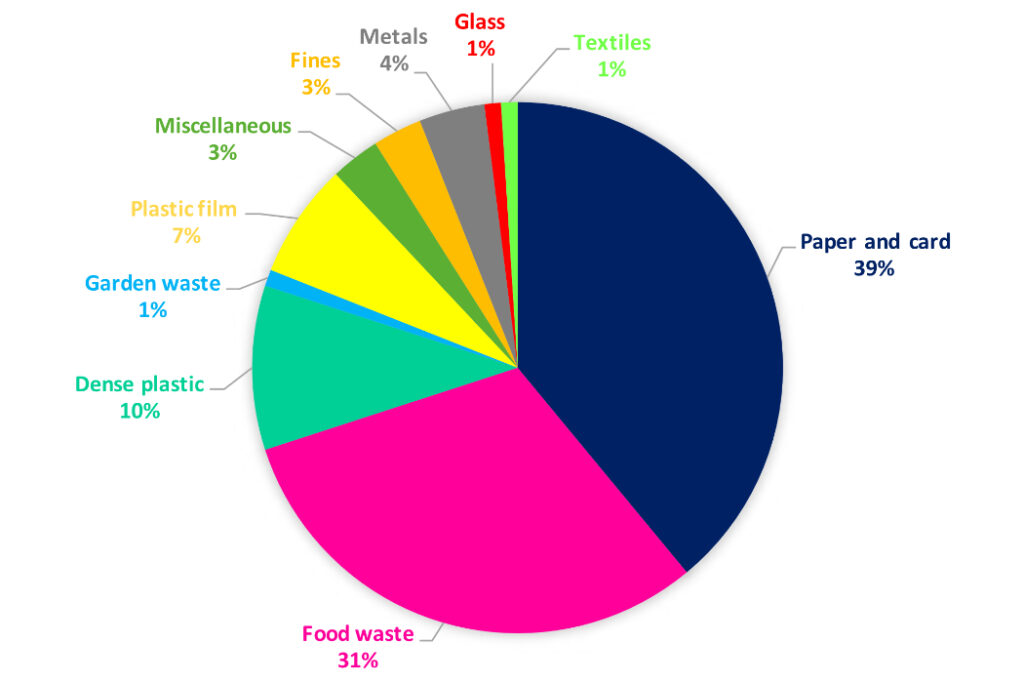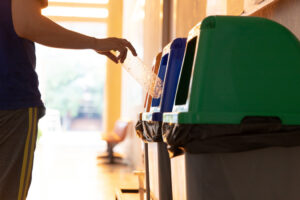Better recycling in schools

7 Steps every school can take
School recycling generates a wide range of daily waste — from leftover food and single-use plastics to paper, packaging, and outdated electronics. With the right school recycling strategy in place, you can improve recycling rates, reduce costs, and teach pupils lifelong habits that benefit the planet.
As of 31 March 2025, new UK recycling regulations (simpler recycling) require all schools to separate six key waste streams: food, glass, metal, plastic, paper, and cardboard. Now is the perfect time to review your waste practices and take meaningful action.
Here are 7 straightforward ways to build better recycling habits in your school:
Step 1. Involve everyone from the start
The more people involved, the better your school recycling results. Build enthusiasm and make recycling part of school culture by:
- Forming an eco-team or green group with both staff and pupils
- Running themed assemblies or lesson plans focused on sustainability
- Celebrating key events like Earth Day or Recycling Week
- Hosting competitions between classes (e.g. most recycled paper wins a prize)
- Highlighting successes in newsletters and school noticeboards
When recycling becomes a shared goal, it’s more likely to succeed, and habits formed at school often carry on into adulthood.
Step 2. Know what can and can’t be recycled
Contamination is one of the biggest barriers to successful recycling. Teach pupils and staff the basics:
What can be recycled:
- Clean paper and cardboard
- Plastic bottles, tubs and trays
- Aluminium cans and clean foil
- Glass bottles and jars
- Food waste (e.g. fruit peels, bread, coffee grounds)
What can’t be commonly recycled:
- Crisp packets and sweet wrappers
- Food-soiled containers
- Used tissues or hand towels
- Cling film and plastic wrap
- Pens, markers and certain hard plastics
Always check with your waste management provider — some items (like pens, soft plastics or WEEE) may be recyclable through specialist services.
Step 3. Understand what you throw away

Before making changes, it helps to know what’s in your bins. Conduct a simple waste audit:
- Track what waste is generated and where (e.g. classrooms, canteens, staffrooms)
- Measure how much is currently being recycled, and what is going to general waste
- Look for obvious changes, like reducing paper handouts or swapping bottled drinks for refills
- Involve pupils in this process — it’s educational and helps build responsibility.
Step 4. Reduce waste at the source
Once you know your biggest waste culprits, take steps to reduce them:
- Paper: Encourage digital communication and print double-sided where possible
- Plastic: Switch to refill stations and reusable containers, avoid single-use milk or juice cartons
- Hand towels: Replace with energy-efficient hand dryers, or choose recyclable paper options and confirm collection availability
Small changes can add up to big savings — both environmentally and financially.
Step 5. Promote reuse in creative ways
Not everything needs to be thrown away, Schools are ideal places to build reuse habits:
- Uniform swap shops: Let parents donate and pick up pre-loved uniforms
- Scrap stations: Repurpose packaging and materials for art and design lessons
- Reusable bottles: Encourage pupils to bring and label their own
- IT and electronics: Use WEEE-compliant services to ensure equipment is reused or properly recycled
- Scrapstore: Source affordable materials for creative activities from your local children’s scrapstore
Step 6. Make recycling easy and visible

Even the most enthusiastic recyclers need the right tools. Set up recycling points that are:
- Clearly labelled with images and words
- Colour-coded (e.g. green for food, blue for paper)
- Paired with general waste bins to encourage correct sorting
- Placed in high-traffic areas like classrooms, canteens and staffrooms
Involve students in creating posters or signage — it encourages ownership and creativity.
Step 7. Choose the right waste partner
Working with a reliable waste management provider makes a big difference.
Look for one that:
- Offers separate bins for food, cardboard, glass and plastic
- Provides regular reports on your recycling progress
- Helps you stay legally compliant with regulations
- Offers specialist collections (e.g. hand towels, printer cartridges, IT equipment)
- Supports education and behaviour change through add-on services
Why Work with Bristol Waste for your school recycling?
We work with schools across Bristol and beyond to make school recycling simpler, smarter and more cost-effective.
Our services include:
- Tailored collections for general, recycling, food and specialist waste
- Support with audits and waste reduction plans
- Reuse services for IT and classroom equipment
- A customer portal for your recycling rates
- Talks, workshops and curriculum-linked school visits
- Free posters, Big Tidy kits and our Waste Nothing Schools Challenge
Ready to take action?
To learn how we can help your school with it’s recycling goals, fill out this form or get in touch with our team via:
- Phone: 0800 061 4321
- Email: sales@bristolwastecompany.co.uk
